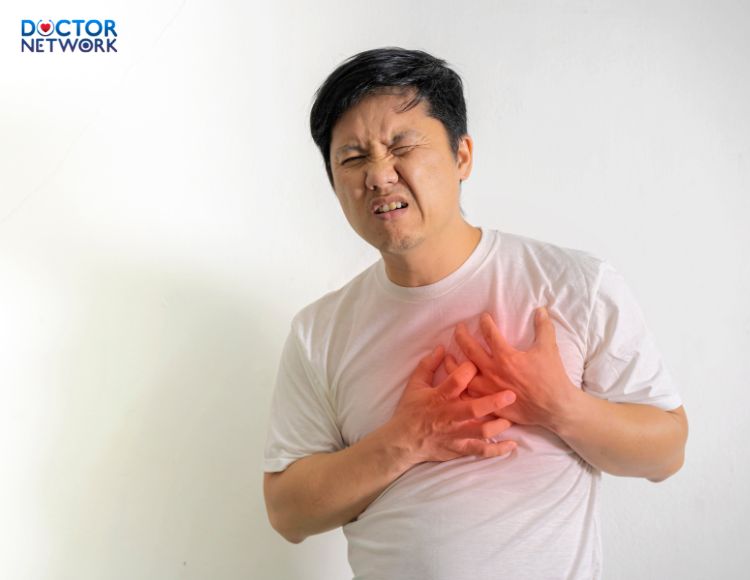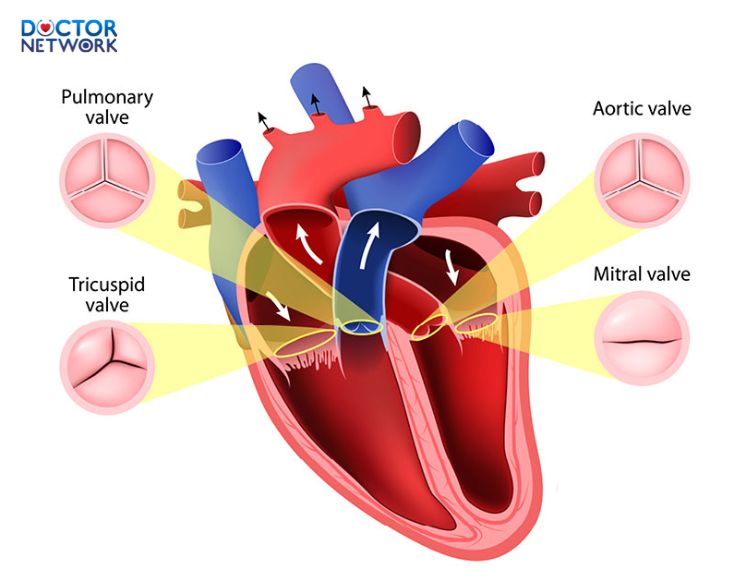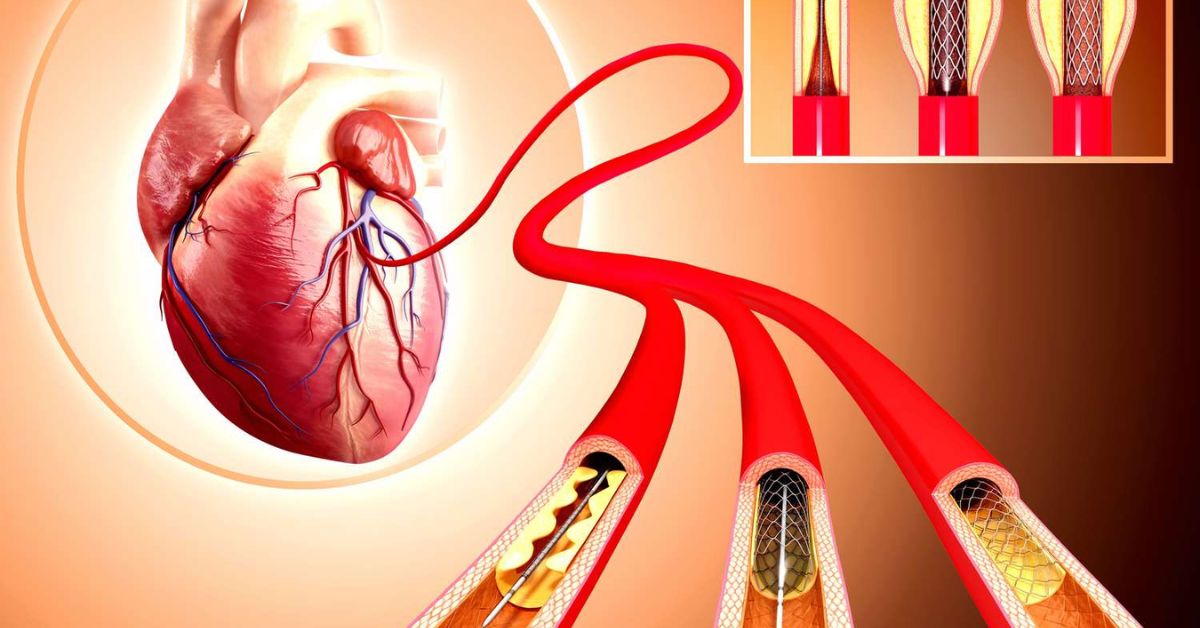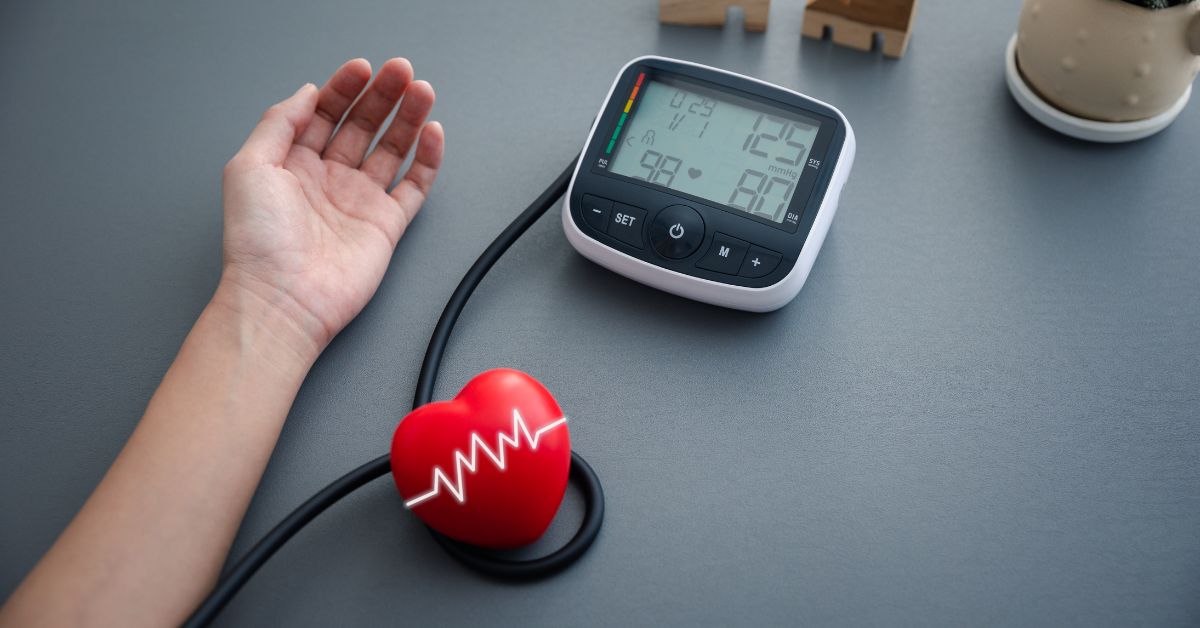Heart valve disease can significantly impact life expectancy, but with proper management and treatment, many patients lead long, fulfilling lives. Theprognosis varies widely depending on factors such as the type and severity of the valve condition, age at diagnosis, overall health, and adherence to treatment plans. This comprehensive guide will explore the intricacies of heart valve disease, “how long can you live with heart valve disease“, its symptoms, diagnostic procedures, treatment options, and factors affecting life expectancy. We’ll also discuss recent advancements in cardiac care that are revolutionizing outcomes for patients with valvular heart disease.
Understanding Heart Valve Disease
What are Heart Valves and How Do They Work?
Heart valves are crucial gatekeepers in the cardiovascular system, ensuring blood flows in the correct direction through the heart’s chambers. These tireless sentinels open and close with each heartbeat, maintaining the rhythm of life.
| Heart Valve | Location | Function |
|---|---|---|
| Mitral | Between left atrium and left ventricle | Prevents backflow into the lungs |
| Aortic | Between left ventricle and aorta | Ensures one-way flow to the body |
| Tricuspid | Between right atrium and right ventricle | Prevents backflow into the body |
| Pulmonary | Between right ventricle and pulmonary artery | Ensures one-way flow to the lungs |
Heart valves play an important role in the circulatory system
Types of Heart Valve Disease
Heart valve disease encompasses a spectrum of conditions affecting these vital structures. The most common types include:
- Aortic Stenosis: Narrowing of the aortic valve opening
- Mitral Valve Prolapse: Improper closure of the mitral valve
- Mitral Regurgitation: Leakage of blood back through the mitral valve
- Tricuspid Regurgitation: Leakage of blood through the tricuspid valve
Each type presents unique challenges and symptoms, from the breathlessness of aortic stenosis to the heart palpitations often associated with mitral valve prolapse.
Causes of Heart Valve Disease
The etiology of heart valve disease is multifaceted, encompassing both congenital and acquired factors:
- Congenital defects: Present at birth, such as bicuspid aortic valve
- Age-related degeneration: Natural wear and tear over time
- Infections: Endocarditis or rheumatic fever
- Autoimmune disorders: Systemic lupus erythematosus or rheumatoid arthritis
- Trauma: Chest injuries affecting the heart structure
Risk factors like hypertension, high cholesterol, and smoking can exacerbate these conditions, underscoring the importance of heart-healthy lifestyles.
Signs and Symptoms of Heart Valve Disease
Recognizing Common Symptoms
The manifestations of valvular heart disease can be insidious, often mimicking other conditions. Key symptoms include:
- Dyspnea (shortness of breath), especially during exertion
- Fatigue and weakness
- Angina (chest pain)
- Palpitations or irregular heartbeats
- Edema (swelling) in the lower extremities
- Dizziness or fainting spells
Symptom severity often correlates with disease progression, ranging from mild discomfort to debilitating limitations in daily activities.
When to See a Doctor
Prompt medical attention is paramount when experiencing any of the aforementioned symptoms. Early diagnosis can significantly improve outcomes and potentially extend life expectancy. Delaying treatment may lead to irreversible heart damage, increased risk of heart failure, and a diminished quality of life.
Diagnosis and Treatment
Diagnostic Procedures
Accurate diagnosis is the cornerstone of effective management. Common diagnostic tools include:
| Procedure | Purpose | What It Shows |
|---|---|---|
| Echocardiogram | Visualize heart structure and function | Valve anatomy, blood flow patterns |
| Electrocardiogram (ECG) | Record electrical activity of the heart | Rhythm abnormalities, heart strain |
| Cardiac Catheterization | Assess blood flow and pressure | Severity of valve disease, coronary artery health |
These tests provide crucial data for tailoring treatment strategies and predicting outcomes.
Treatment Options for Heart Valve Disease
Treatment modalities span a continuum from conservative management to cutting-edge surgical interventions:
- Medication: To manage symptoms and prevent complications
- Beta-blockers
- Anticoagulants
- Diuretics
- Lifestyle modifications: To reduce strain on the heart
- Dietary changes
- Exercise programs (as tolerated)
- Stress reduction techniques
- Surgical interventions:
- Valve repair: Preserving native valve tissue when possible
- Valve replacement: Using mechanical or biological prostheses
- Minimally invasive procedures: Offering faster recovery for suitable candidates
The choice of treatment depends on various factors, including the patient’s age, overall health, and the specific valve affected.
Life Expectancy and Prognosis
Factors Affecting Life Expectancy
The prognosis for individuals with heart valve disease varies widely, influenced by:
- Type and severity of valve disease
- Age at diagnosis
- Comorbidities (e.g., coronary artery disease, diabetes)
- Timing of intervention
- Treatment adherence

The life expectancy of people with heart valve disease is not fixed but depends on many factors
For instance, a young patient with mild mitral valve prolapse may have a normal life expectancy with proper management, while an elderly individual with severe aortic stenosis may face a more guarded prognosis without intervention.
Living with Heart Valve Disease
Maintaining a high quality of life with valvular heart disease requires a multifaceted approach:
- Regular follow-up appointments with a cardiologist
- Strict adherence to medication regimens
- Heart-healthy lifestyle choices

Exercise regularly (after your doctor gives you permission)
- Participation in cardiac rehabilitation programs
- Emotional support and stress management
Many patients find solace and practical advice through support groups like Mended Hearts or the American Heart Association’s online communities.
Research and Advancements
The field of valvular heart disease is experiencing rapid innovation:
- Transcatheter valve replacements: Offering hope for high-risk surgical candidates
- Tissue-engineered valves: Promising longer-lasting biological alternatives
- AI-driven predictive models: Enhancing risk stratification and treatment planning
These advancements are continually reshaping the landscape of cardiac care and improving long-term outcomes for patients with heart valve disease.
Frequently Asked Questions (FAQs) about “how long can you live with heart valve disease”
- Q: Can heart valve disease be cured? A: While not always curable, heart valve disease can be effectively managed, and in many cases, valve function can be restored through repair or replacement.
- Q: How often should I see my doctor if I have heart valve disease? A: Follow-up frequency depends on disease severity but typically ranges from every 3-12 months. Your cardiologist will provide a personalized schedule.
- Q: Can I exercise with heart valve disease? A: Many patients can and should exercise, but it’s crucial to follow your doctor’s recommendations. A tailored exercise program can improve overall health and symptoms.
Scientific Researches
- “Natural History of Asymptomatic Patients With Normally Functioning or Minimally Dysfunctional Bicuspid Aortic Valve in the Community” by Michelena et al. (2008), published in Circulation.
- “Survival in Patients With Severe Aortic Stenosis: A Systematic Review and Meta-Analysis of the Impact of Symptoms and Aortic Valve Area” by Genereux et al. (2016), published in the Journal of the American College of Cardiology.
- “Outcomes 15 Years After Valve Replacement With a Mechanical Versus a Bioprosthetic Valve: Final Report of the Veterans Affairs Randomized Trial” by Hammermeister et al. (2000), published in the Journal of the American College of Cardiology.
- “Mitral-Valve Repair versus Replacement for Severe Ischemic Mitral Regurgitation” by Goldstein et al. (2016), published in the New England Journal of Medicine.
- “Long-Term Outcomes of Patients With Asymptomatic, Severe Aortic Stenosis and Left Ventricular Systolic Dysfunction” by Henkel et al. (2012), published in Circulation: Heart Failure.
- “Natural History of Very Severe Aortic Stenosis” by Rosenhek et al. (2010), published in Circulation.
Conclusion: The Importance of Early Diagnosis and Management
Heart valve disease, while serious, does not necessarily equate to a shortened lifespan. With advances in medical and surgical treatments, many patients enjoy long, active lives post-diagnosis. The key lies in early detection, proactive management, and adherence to treatment plans. If you experience symptoms like shortness of breath, chest pain, or unusual fatigue—especially if you have a family history of heart disease—don’t hesitate to seek medical evaluation. Remember, knowledge is power, and in the realm of heart health, it can be life-saving.
References:
Will a Leaky Heart Valve Affect Your Life Expectancy? – HealthCentralhealthcentral·1
Life expectancy for leaking heart valve diseases: What to knowmedicalnewstoday·2
Kiểm Duyệt Nội Dung
More than 10 years of marketing communications experience in the medical and health field.
Successfully deployed marketing communication activities, content development and social networking channels for hospital partners, clinics, doctors and medical professionals across the country.
More than 6 years of experience in organizing and producing leading prestigious medical programs in Vietnam, in collaboration with Ho Chi Minh City Television (HTV). Typical programs include Nhật Ký Blouse Trắng, Bác Sĩ Nói Gì, Alo Bác Sĩ Nghe, Nhật Ký Hạnh Phúc, Vui Khỏe Cùng Con, Bác Sỹ Mẹ, v.v.
Comprehensive cooperation with hundreds of hospitals and clinics, thousands of doctors and medical experts to join hands in building a medical content and service platform on the Doctor Network application.



























